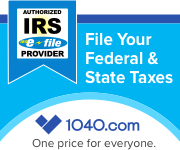Financial Crimes Enforcement Network (FinCEN) Filings
Starting January 1, 2024, many companies will be required to report information to the U.S. government about their Beneficial Owners.Information for Small Businesses
For existing businesses, the Corporate Transparency Act (CTA) goes into effect on January 1, 2024, and imposes a brand-new federal filing requirement on most corporations, limited liability companies, and limited partnerships and on certain other business entities.
No later than December 31, 2024, all non-exempt business entities must file a beneficial owner information report (BOI report) with the Financial Crimes Enforcement Network (FinCEN)—the Treasury Department’s financial intelligence unit.
These BOI reports must disclose the identities and provide contact information for all of the entity’s “beneficial owners”: the humans who either (1) control 25 percent of the ownership interests in the entity or (2) exercise substantial control over the entity.
Reporting companies created or registered in 2024 will have 90 calendar days from the date of receiving actual or public notice of their creation or registration becoming effective to file their initial reports. FinCEN will not accept BOI reports from reporting companies until January 1, 2024—no reports should be submitted to FinCEN before that date.
FinCEN will create a new database called BOSS (Beneficial Ownership Secure System) for the BOI and will deploy the BOI to help law enforcement agencies prevent the use of anonymous shell companies for money laundering, tax evasion, terrorism, and other illegal purposes. It will not make the BOI reports publicly available.
The CTA applies only to business entities formed by filing a document with a state Secretary of State or similar official, such as corporations and LLCs. It also applies to foreign business entities that register to do business in the United States.
The CTA does not apply to sole proprietors or general partnerships in most states. But it does apply to single-member LLCs, even though the tax code disregards such entities and taxes them on Schedule C, E, or F of Form 1040. List of Exempt entities
Failure to comply can result in hefty monetary penalties and up to two years in prison.
What is in the BOI report?
- Full legal name
- Date of birth
- Complete current residential street address
- A unique identifying number from either a current U.S. passport, state or local ID document, or driver’s license or, if the individual has none of those, a foreign passport
- An image of the document from which the unique identifying number was obtained
Your BOI report must also contain the following information about your company:
- Legal name (and any trade name or dba)
- Address of principal place of business (this can’t be a P.O. box or the office of the entity’s registered agent)
- State or jurisdiction of formation
- IRS taxpayer identification number
Who Are Beneficial Owners?
The beneficial owners are the human beings who actually own and/or control a reporting company. A beneficial owner can’t be a business entity such as an LLC or corporation. If a reporting company is owned by a business entity, the human owners of that entity—and not the entity itself—must be listed as the beneficial owners.
There are two different types of beneficial owners:13
The humans who own or control at least 25 percent of the ownership interests in the company
The humans who exercise “substantial control” over the company
Exemptions. Individuals who would otherwise qualify as beneficial owners may be omitted from the BOI report if they are:
- minor children (provided their parent or legal guardian is listed);
- individuals acting as a nominee, intermediary, custodian, or agent on behalf of another individual (provided the individual for whom the agent or nominee acts is listed);
- employees other than senior officers;
- heirs of company owners; and
- creditors of a reporting company, unless the creditor is a beneficial owner based on substantial control or on ownership or control of 25 percent or more of the ownership interests.
A good rule of thumb: if you’re not sure whether a person exercises substantial control, but the person might do so, list the person in the BOI report.
1. The Corporate Transparency Act goes into effect on January 1, 2024. Non-exempt companies formed in 2023 and earlier must file a beneficial owner information report with FinCEN—the Treasury Department’s financial intelligence unit. The BOI report must be filed by January 1, 2025.
2. Companies subject to the CTA include corporations, limited liability companies, limited partnerships, and other business entities formed by filing a document with a state Secretary of State. Foreign companies that register to do business in the U.S. must also comply.
3. Certain types of businesses are exempt from the CTA, including those with 20 or more employees and $5 million in annual income. Specific types of heavily regulated businesses such as publicly traded companies are also exempt.
4. The BOI report must disclose the identities and contact information of all of the entity’s “beneficial owners”: the humans who either (a) control 25 percent of the ownership interests in the entity or (b) exercise substantial control over the entity.
5. Companies have an ongoing duty to keep the BOI report up to date. They must report any changes to FinCEN within 30 days.


